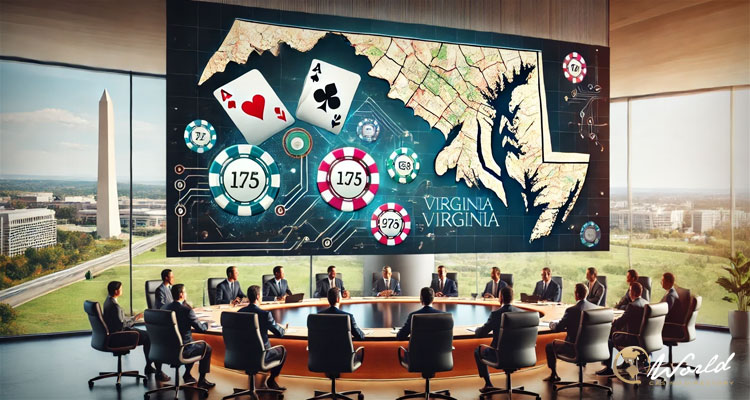As Virginia lawmakers prepare for the 2025 legislative session, one key issue is making a comeback: the proposed construction of a casino in Fairfax County, specifically in the Tysons area. This idea has been brought before the General Assembly in previous years but has never garnered sufficient support to advance. However, this time, the proposal is being introduced by Sen. Scott Surovell, who serves as the Senate Majority Leader.
Debate intensifies as local support and opposition weigh in:
Surovell has long championed the expansion of casino gaming in Virginia, driven by his belief that it could significantly benefit the state. His proposal centers around creating a resort-style casino in Tysons, complete with a hotel, concert venue, convention center, and other entertainment facilities. The bill aims to grant the Fairfax County Board of Supervisors the authority to call for a local referendum, giving voters the final say on the project.
Surovell, who has been vocal about the economic advantages of such a development, argues that the revenue generated by the casino could be a significant boon to both Virginia and Fairfax County. “It would generate hundreds of millions in tax revenue for both the Commonwealth and Fairfax County,” he emphasized. As WTOP News reports, he pointed to the fact that Virginians are currently spending large sums of money at the MGM National Harbor Hotel & Casino in Oxon Hill, Maryland, which generates around $300 million annually in tax revenue for Prince George’s County. Surovell sees this as an opportunity to recapture that revenue for Virginia. “About one-third of it is being funded by Virginia residents going into Maryland,” he said. “It’s always really disturbed me that that thing was plopped right there to suck money out of our state that should be remaining in the state, helping to pay for schools and services.”
Casino proposal draws mixed reactions:
The debate surrounding the casino proposal has sparked strong opinions on both sides. Supporters, including local labor unions, view the casino as an opportunity for job creation and economic revitalization in the Tysons area. The developers behind the project, including Comstock Holding Companies, are pushing for the entertainment complex, which would significantly increase the area’s commercial offerings, including potential nightlife. Christopher Clemente, CEO of Comstock, believes the casino would provide a much-needed boost to Tysons. “By bringing a casino operation to a development like that, we can do those other things that are benefits to the community, the county, and the state for that matter, without requiring any public financing of any kind,” Clemente remarked.
In contrast, many local residents and officials have expressed opposition to the idea. A major concern raised by critics is the anticipated increase in traffic congestion in Tysons, a region that is already grappling with heavy traffic. However, Surovell has argued that the development would be well-connected to the Metro Silver Line, allowing visitors to use public transit rather than relying on cars. “Part of the reason the state chose to invest billions of dollars in extending the Silver Line out this way was to put exactly this kind of density and this kind of activity at this location,” he said. The project would be strategically located within a quarter-mile of a Metro station, making it easier for visitors to access the area without contributing to the already significant road congestion.
Additionally, some community groups have been vocal in their opposition to the casino. The McLean Citizens Association, which represents residents in nearby neighborhoods, has been campaigning against the proposal, with concerns over the potential for increased gambling-related issues and changes to the area’s character. According to NBC4 Washington, Linda Walsh, a member of the group, voiced the sentiments of many residents, saying, “They flocked to us to say ‘no casino,’ so especially I think the younger people with children are very concerned about adding the gambling element to our community.”
The path to a casino in Tysons is far from guaranteed. Even if the proposal passes through the General Assembly, it still faces numerous hurdles. If the bill is approved and signed into law, it would be up to the Fairfax County Board of Supervisors to approve the project and place it on the ballot as a referendum for local voters. While some political figures see the project as an economic necessity, others, including a group of former national security professionals, have raised concerns about the potential risks the casino could pose to the nearby intelligence community. They warn that the proximity to Langley and thousands of defense and intelligence employees could create security vulnerabilities. However, Surovell has dismissed these concerns, suggesting that they are simply the objections of those opposed to the project. “I think these are just people that don’t want something in their backyard,” he said.
The debate over the proposed casino in Tysons is likely to intensify as the 2025 session unfolds, with lobbying efforts on both sides continuing to shape the conversation. In 2023 and 2024, opponents of the casino spent significant sums lobbying state lawmakers, with MGM Resorts International contributing over $750,000 to influence the discussion, Patch reports. The fight over the Tysons casino is set to continue, with each side preparing for what promises to be a contentious legislative battle.



